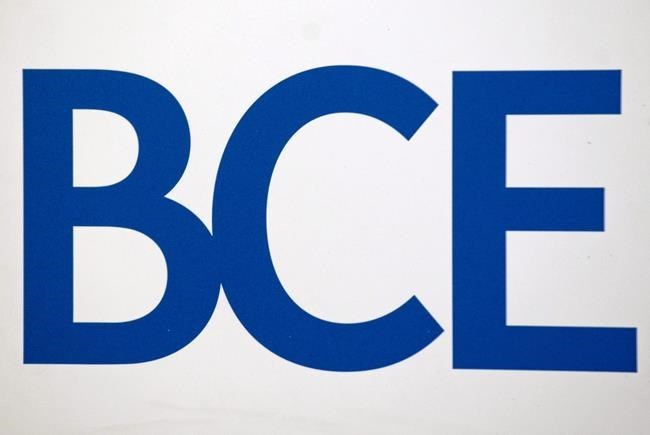TORONTO — The parent of Bell Canada saw its net profit fall nearly 70 per cent from the same period last year due to the pandemic's impact on economic activity and customer demand, but said Thursday that it's well-positioned to withstand the headwinds.
Mirko Bibic, president and CEO of Bell and its parent BCE Inc., told analysts that the companies have generated substantial cash flow with no near-term debt payments — giving it the financial flexibility to maintain its dividend and capital spending.
"Although we don't expect to return to pre-COVID operating performance in the near term, Q3 is anticipated to show a marked improvement. We remain very confident in the underlying long-term fundamentals and performance of BCE," Bibic said.
"In the midst of COVID, we've made meaningful progress in advancing our strategic priorities so as to generate continued operating momentum in the near-term and ultimately emerge from the crisis in an even stronger competitive position."
BCE Inc. reported earlier Thursday that its net income attributable to common shareholders dropped to $237 million for the three months ended June 30, from $761 million a year earlier.
That amounted to 26 cents per share of net earnings, down from 85 cents per share in last year's second quarter.
The decline included a $452-million non-cash impairment charge to reflect the current value of Bell Media's television and radio assets.
Adjusted earnings per share, which exclude some expenses, fell 32.3 per cent to 63 cents year-over-year — below analyst estimates compiled by financial markets data firm Refinitiv.
Revenue was also slightly below analyst estimates at $5.35 billion, down 9.1 per cent from $5.89 billion a year earlier.
Analysts had estimated BCE Inc. would have 69 cents per share of adjusted earnings with nearly $5.37 billion of revenue, according to Refinitiv.
Montreal-based BCE — owner of Canada's largest telecommunications and media businesses — does business under a vast array of brands including Bell, Bell Mobility, Virgin Mobile, Lucky Mobile, CTV, TSN, and The Source retail chain.
Its national competitors in wireless are Rogers Communications Inc. (owner of the Rogers, Fido and Chatr brand) and Telus (Telus, Koodo, Public Mobile).
On the wireless front, Bell and its publicly traded competitors all say they'd faced severe COVID-ralated challenges during March, April and May — when many parts of Canada restricted or closed retail outlets to limit the spread of COVID-19.
The retail closures limited the carriers' ability to sell new phones and services but, because the problem was so widespread, consumers generally weren't changing providers either. That resulted in record low churn rates in many cases.
Analyst Drew McReynolds of RBC Dominion Securities said in a research note Thursday ahead of BCE's conference call that Bell's wireless revenue and EBITDA (earnings before interest, taxes and other expenses) were down less than he expected.
Canaccord Genuity analyst Aravinda Galappatthige noted Bell's wireless service revenue were down 6.3 per cent, which was more than his estimate, but post-paid subscriber additions were ahead of estimates at 21,600.
In terms of residential and business telecom services delivered by land lines — including internet, television and phone — there was also very low customer turnover reported even though some customers fell behind of their payments due to COVID's economic impact.
BCE chief financial officer Glenn Leblanc told analysts Thursday that the company's COVID-related expenses during the quarter included $36 million of provisions for bad customer debts.
The relocation of call-centre agents to work from home, the purchase of personal protective equipment and increased sanitation and cleaning expenses brought total COVID direct costs to $85 million, including the incremental bad debt provisions, he said..
Apart from BCE's reduced earnings from its own operations, it received reduced income from its part ownership in Maple Leaf Sports and Entertainment (owner of Toronto's major league hockey and basketball teams).
Despite these declines, Leblanc said BCE's free cash flow — which is after servicing current debt — increased by 50 per cent compared with a year earlier to $1.6 billion, in part because of reduced capital spending during the initial stages of COVID.
"Construction activity has now ramped up considerably," Leblanc said.
This report by The Canadian Press was first published Aug. 6, 2020.
Companies in this story: (TSX:BCE, TSX:RCI.B, TSX:T, TSX:QBR.B, TSX:SJR.B)
David Paddon, The Canadian Press




